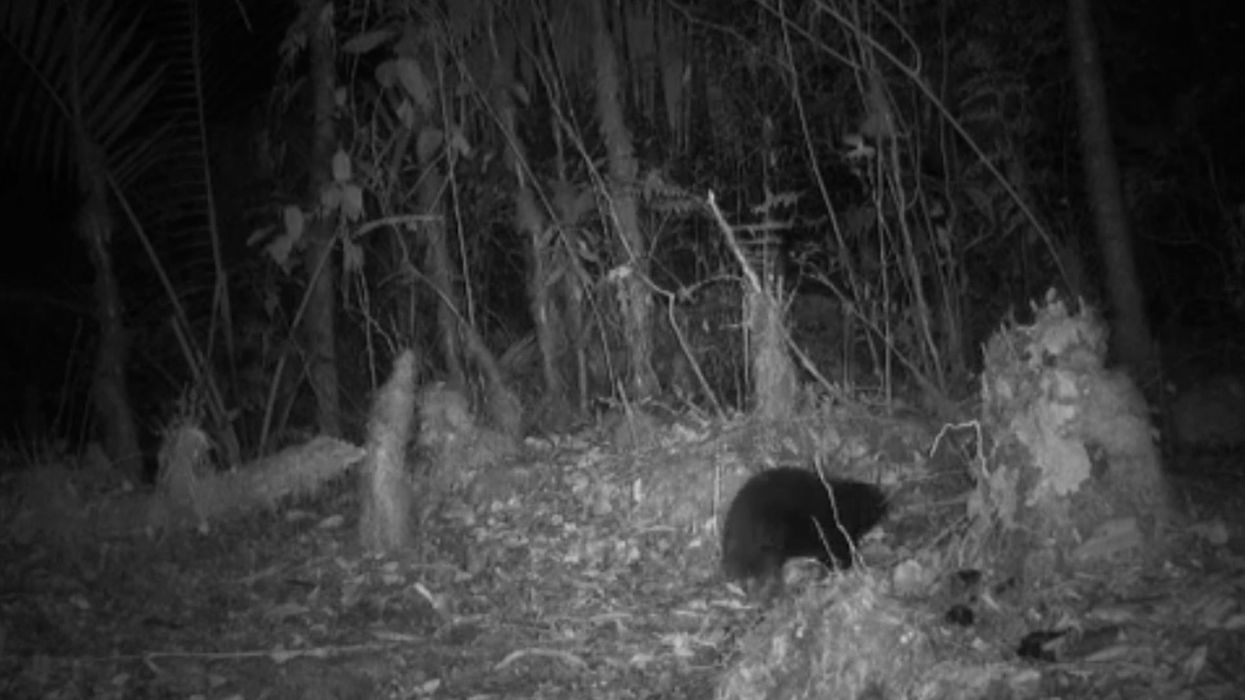Alex Daniel
Nov 10, 2023
Attenborough's long-beaked echidna filmed using camera trap
Expedition Cyclops
An ancient egg-laying mammal named after Sir David Attenborough that was thought to be extinct is actually alive and well, scientists have proved.
Attenborough’s long-beaked echidna, which is thought to have been around since the dinosaur era, was caught on camera by an Oxford University expedition to Indonesia.
The spiky, furry, beaked creature has been described as a “living fossil” because of how long it has been walking the Earth, about 200m years.
Until the video, scientists had relied on a dead, decades-old museum specimen of the creature, as evidence that it was still around.
Dr James Kempton, who led the expedition, said: “I was euphoric, the whole team was euphoric.”
“I’m not joking when I say it came down to the very last SD card that we looked at, from the very last camera that we collected, on the very last day of our expedition.”
Dr Kempton said he had been in touch with Attenborough about the rediscovery, and that the broadcaster was “absolutely delighted”.
The expedition also discovered new species of insects and frogs on the trip, which took them through previously unexplored stretches of the Cyclops Mountains, a steep, high-altitude area of Papau, Indonesia.
Scientists were twice affected by earthquakes over the course of their expedition, and had to climb narrow ridges with cliffs either side, often in heavy rain.
Dr Kempton added: “You're slipping all over the place. You're being scratched and cut. There are venomous animals around you, deadly snakes like the death adder.
“There are leeches literally everywhere. The leeches are not only on the floor, but these leeches climb trees, they hang off the trees and then drop on you to suck your blood.”
He said he hopes the rediscovery will help promote conservation efforts in the Cyclops Mountains. The species is not currently protected in Indonesia, and scientists don’t know how many there are.
“Given so much of that rainforest hasn't been explored, what else is out there that we haven't yet discovered? The Attenborough long-beaked echidna is a symbol of what we need to protect - to ensure we can discover it.”
How to join the indy100's free WhatsApp channel
Sign up to our free indy100 weekly newsletter
Have your say in our news democracy. Click the upvote icon at the top of the page to help raise this article through the indy100 rankings.
Top 100
The Conversation (0)














